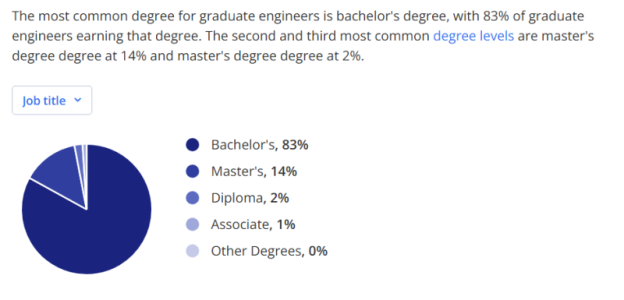I think high schools need to make a shift back to encouraging kids to do trades. They've brainwashed them into thinking they have to get a college degree. You have a generation that thinks getting their hands dirty is beneath them. The funny thing is those trade jobs are making the money right now. I just paid an electrician 1300 for a job that took about two hours of work. I had to call about 20 places before I could find one that could do it right away.
This is a sweeping generalization that really only serves to dismiss up-and-coming established adults vs. actually taking a look at the 'why and how' there was such a huge push for college. Don't forget that there was a major,
major acceleration of development in computer and information technology in the 70's-90's and at that time college was the best avenue for learning how to code and understand complex computer/web systems.
So really, who is the group that 'brainwashed' the children, exactly? I certainly didn't learn about college first from my peers when I was in middle and high school, and it certainly was not them telling me that I myself would be a failure if I didn't go, and that in itself was not of malicious intent. It was my family and their peers hoping that I would live better than they did at my current age. Now instead of actually agreeing with the accomplishment, myself and people in my age group now have the privilege of listening to those same people talk about how it was a waste of time and money and blaming us for it. We wanted better too, but the current economy is not allowing for that for
many demographics right now.
And I'm still glad I went.
College is important not only for further practical and specialized education but also for exposure to other cultures and people outside of one's initial bubble. There are thousands upon thousands of international students, just like there are clubs, seminars, and many other avenues to allow students to physically and directly interact with and broaden their social capabilities. This is not something that the internet can teach, and it is increasingly difficult to find trustworthy sources online that allow a deeper level of education.
Trades are valuable, but not everyone is capable of doing them, and not everyone should be a doctor or an engineer
or an electrician or a plumber. The world still needs librarians (which require extensive data, education, and humanities education) and sociologists just as much as it needs accountants and engineers. We also still need waitstaff, stockers, cashiers, authors, artists, cooks, dishwashers, and every other job typically seen as 'undesirable' and 'unworthy' of a living wage.
Every career has value, and every career deserves a living wage and respect for what they contribute to society as a whole.
You will find that people will do the jobs that make ends meet no matter what, and plenty of people pursue and enjoy trades (myself included), and it is already seen as valuable within the people in our age group. You still have to go to school or manage to find someone willing to take you as an apprentice however, and you will pay for it later with medical bills to fix your body. Either way, there is still a massive cost to pursuing
any career, especially in a day and age where it is expected, often required, to work 50-60+ hours a week with little to no benefits just to make ends meet.
